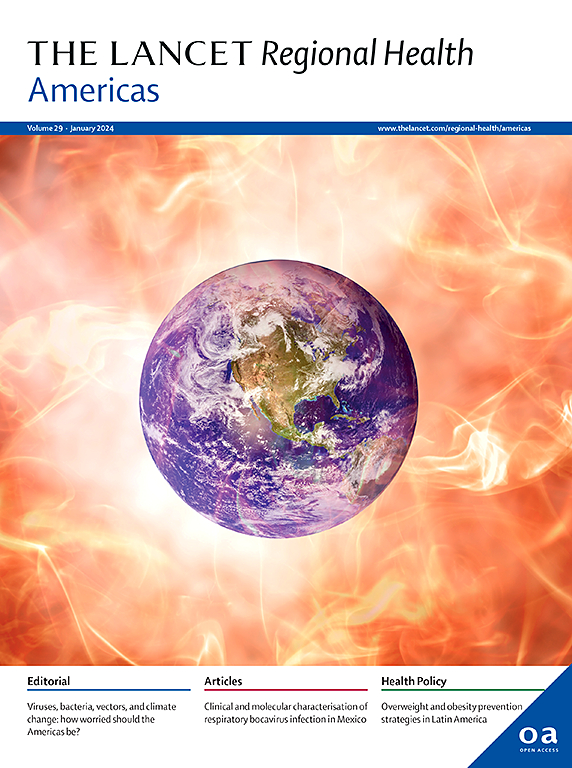巴西苯丙酮尿症(PKU)人群的患者旅程和疾病负担特征:通过公共卫生系统管理数据库(DATASUS)报告的数据进行回顾性分析
IF 7
Q1 HEALTH CARE SCIENCES & SERVICES
引用次数: 0
摘要
2001年,巴西对包括苯丙酮尿(PKU)在内的各种疾病实施了全国新生儿筛查(NBS)。关于NBS计划在出生时诊断PKU和在诊断后30天内开始使用无phe氨基酸配方治疗的有效性的数据缺乏。本研究评估了NBS计划的有效性,并对北京大学人群进行了特征分析。方法采用2008年至2021年巴西统一卫生系统信息部(DATASUS)的匿名数据进行了一项观察性、重复的横断面人群研究。仅纳入确诊的患者。研究发现,在所有年份中,出生30天内的活产婴儿的snbs覆盖率为80%,而PKU的年发病率为每10万活产婴儿4至8例。从出生到筛查诊断的中位时间约为18天(所有年份)。DATASUS有7615例有PKU记录的患者。DATASUS中首次记录的中位年龄为6.1岁,主要来自东南部地区(53%)。此外,44%的北京大学人口有接受无phe配方治疗的记录。代谢及相关疾病在18岁以上人群中最为常见(28.1%),而精神和行为疾病在≥18岁人群中最为常见(100%)。需要进一步的研究来提高国家统计局覆盖的有效性,缩短从诊断到开始治疗的时间,改善无phe配方分布,并提高DATASUS数据质量。目前的研究由加州诺瓦托的BioMarin制药公司资助。本文章由计算机程序翻译,如有差异,请以英文原文为准。
Patient journey and disease burden characterization of the population with phenylketonuria (PKU) in Brazil: a retrospective analysis through data reported in the public health system administrative database (DATASUS)
Background
In 2001, Brazil implemented a national newborn screening (NBS) for various conditions, including phenylketonuria (PKU). Data is lacking on the effectiveness of the NBS program in diagnosing PKU at birth and initiating treatment with a Phe-free amino acid-based formula within 30 days of diagnosis. This study evaluated the effectiveness of the NBS program and characterized the PKU population.
Methods
An observational, repeated cross-sectional population-based study was conducted using anonymized data from the Department of Informatics of the Unified Health System (DATASUS) in Brazil from 2008 to 2021. Only patients with confirmed diagnoses were included.
Findings
NBS coverage of live births within 30 days of birth was >80% for all years, while annual incidence of PKU ranged from 4 to 8 per 100,000 live births. Median time to screening diagnosis from birth was approximately 18 days (all years). DATASUS had 7615 patients with a record of PKU. The median age of the first record in DATASUS was 6.1 years, predominantly from the southeast region (53%). Also, 44% of the PKU population had a record of receiving Phe-free formula for treatment. Metabolic and related disorders were most prevalent in those <18 years of age (28.1%), while mental and behavioral disorders were most prevalent in those ≥18 years of age (100%).
Interpretation
Further investigations are necessary to enhance the effectiveness of NBS coverage, reduce the time from diagnosis to treatment initiation, improve Phe-free formula distribution, and improve DATASUS data quality.
Funding
The current study was funded by BioMarin Pharmaceutical, Novato, CA.
求助全文
通过发布文献求助,成功后即可免费获取论文全文。
去求助
来源期刊

Lancet Regional Health-Americas
Multiple-
CiteScore
8.00
自引率
0.00%
发文量
0
期刊介绍:
The Lancet Regional Health – Americas, an open-access journal, contributes to The Lancet's global initiative by focusing on health-care quality and access in the Americas. It aims to advance clinical practice and health policy in the region, promoting better health outcomes. The journal publishes high-quality original research advocating change or shedding light on clinical practice and health policy. It welcomes submissions on various regional health topics, including infectious diseases, non-communicable diseases, child and adolescent health, maternal and reproductive health, emergency care, health policy, and health equity.
 求助内容:
求助内容: 应助结果提醒方式:
应助结果提醒方式:


